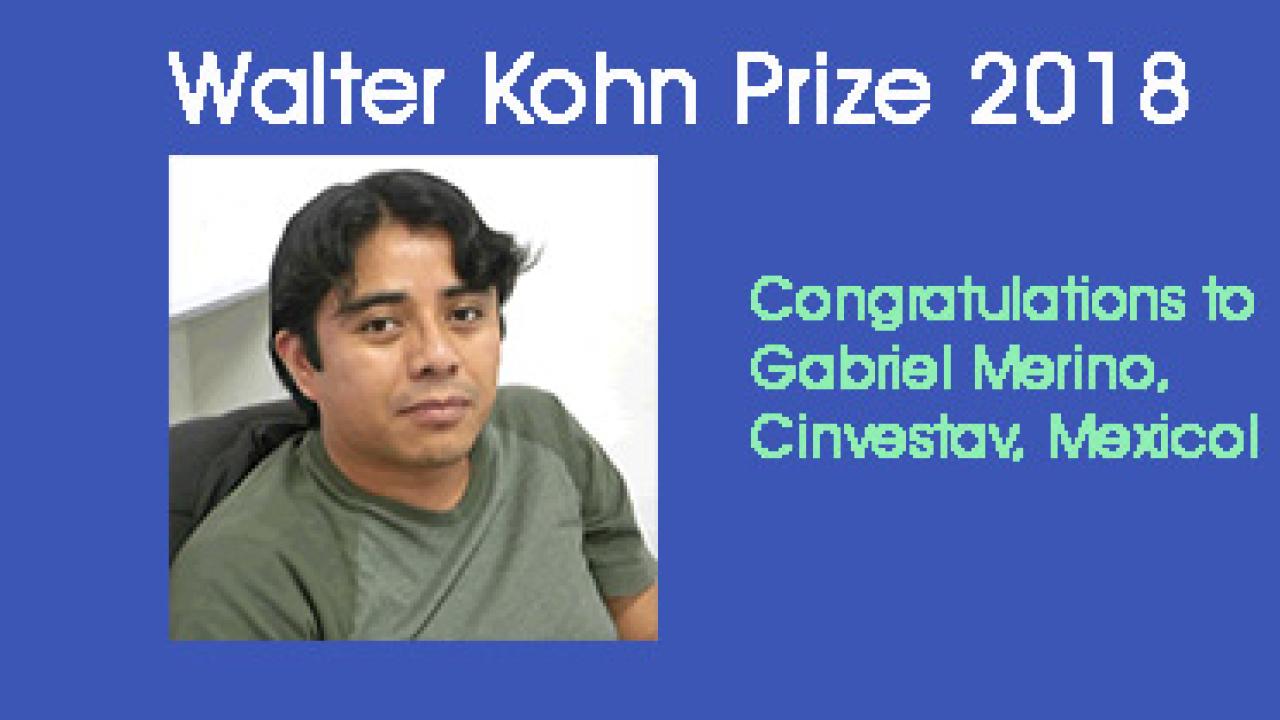
The Walter Kohn Prize for quantum-mechanical materials and molecular modeling has been awarded to Professor Gabriel Merino, a researcher from Centro de Investigación y de Estudios Avanzados (Cinvestav), Unidad Mérida, Mexico. The prize recognizes his pioneering work on predicting and understanding novel systems that violate standard chemical paradigms, and for generalizing and broadening the scope of concepts such as aromaticity, coordination and the chemical bond.
Professor Merino will receive the prize at a ceremony to be held 10 January 2019 at ICTP, during the Centre’s International Workshop on Computational Physics and Materials Science. The ceremony also will be livestreamed.
The prize was established in March 2016 by ICTP and the Quantum ESPRESSO Foundation (QEF) in honor of Chemistry Nobel Laureate Walter Kohn, a leading condensed matter physicist who developed density functional theory (DFT), a method that drastically reduces the amount of computing power needed to model the properties of complex materials, without compromising the accuracy of a model’s simulations. DFT has already had a big impact on a wide variety of fields, including chemistry, molecular physics, medicine and engineering. It also has opened the door to contributions from scientists from disadvantaged countries who have no access to huge supercomputers, due to its low computing costs and the wide availability of open source modeling software.
"Walter Kohn would have been proud to see recognized the simplicity, elegance, and depth of Gabriel Merino’s contributions to the interpretation of elementary, yet elusive concepts at the basis of our understanding of the chemical bond," said ICTP condensed matter physicist Sandro Scandolo, who is a representative member of the Quantum ESPRESSO Foundation. He highlighted the significance of Merino's work to the development of sustainable science, saying, "This year’s prize honours not only an outstanding scientist, but also a vibrant community of theoretical chemists based in Mexico, with important branches in the rest of Latin America."
"Professor Merino’s work is a demonstration of what molecular modelling can produce at its best: not just numbers, but deep insight," said Stefano Baroni, QEF's founding director and a professor in the condensed matter physics section at the International School for Advanced Studies (SISSA). He added, "The struggle to give intuitive, sometimes vague, chemical concepts a proper theoretical foundation is essential to turn these concepts into calculable equations, and is one noblest goals of molecular and materials modelling."
Baroni explained that Merino has achieved this goal by putting the ubiquitous concepts of aromaticity and electron delocalisation on a firm theoretical ground. "Like any true master in theoretical sciences, he was not content with an abstract definition, but he went all the way through to figure out how the concepts he introduced can be probed in the lab. Walter Kohn would have been glad to see his name associated with such extraordinary achievements and scientific style," he said.
The Quantum ESPRESSO Foundation is the home of some of the most popular and internationally recognized open source codes for quantum-mechanical materials modeling, based on DFT. ICTP regularly organizes schools with QEF, especially in developing countries.
















